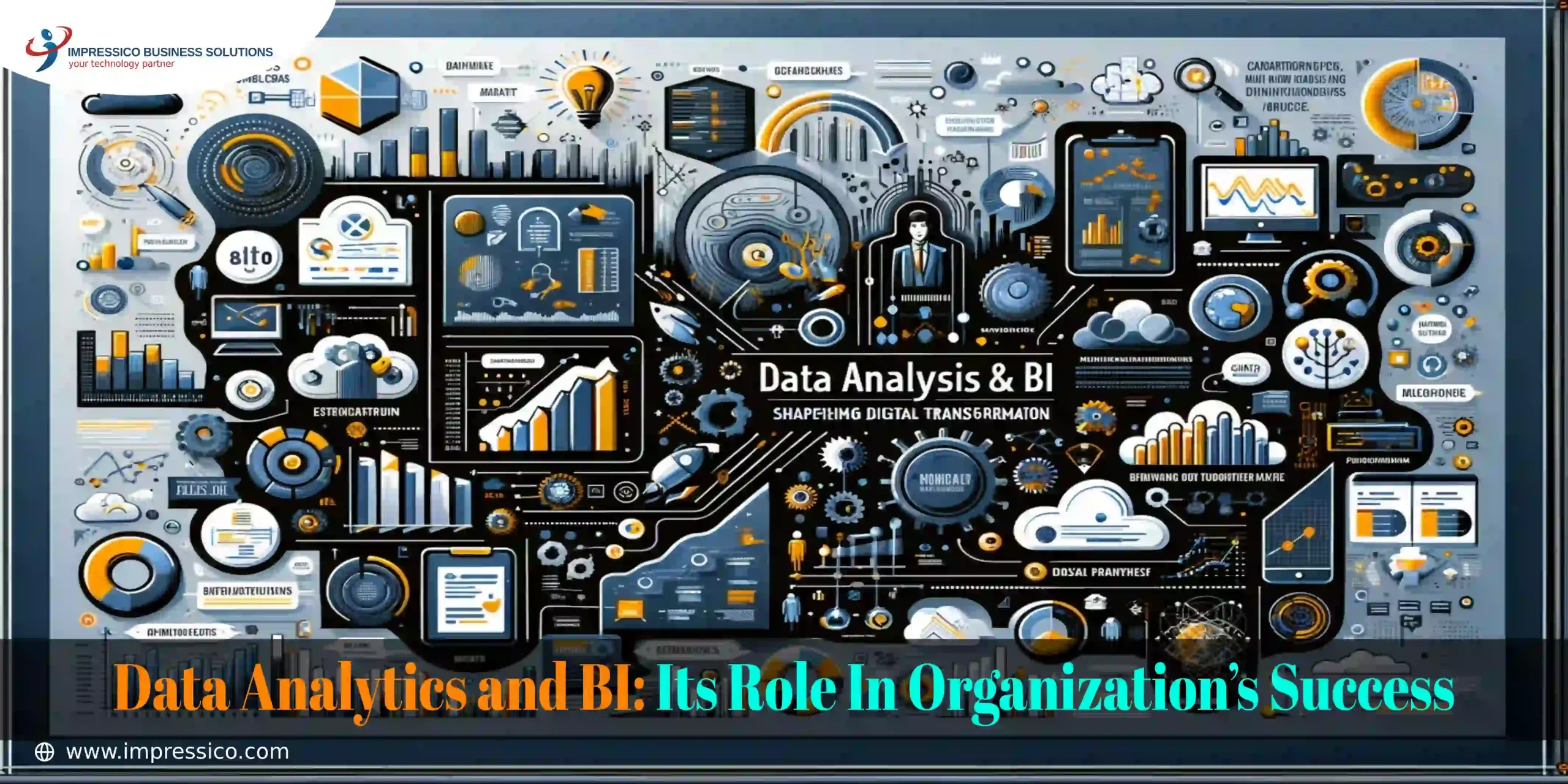Data Analytics and BI: Its Role In Organization’s Success

In the present digital-first and customer-centric world, many business owners are bombarded with ‘information overload’ and are immediately seeking ways to get better control, understanding, and intelligence from their business data.
One of the best ways to manage this growing problem is to implement a Data Analytics and Business Intelligence (BI) strategy, but in reality, many organizations have been lethargic to do so – because of a lack of knowledge of precisely what it involves, where to begin, how long it will take to notice any benefit and also being wary of common business intelligence pitfalls.
The fact is: Business Intelligence should be a vital part of your operation.
Technology analyst Gartner defines Analytics and business intelligence (ABI) as an umbrella term that includes the applications, infrastructure and tools, and best practices that enable access to and analysis of information to improve and optimize decisions and performance. (Source: Gartner)
So, in practical terms, let’s explore how Analytics and Business Intelligence deliver benefits to your business?
Smart Decision Making
As a business owner, it’s necessary to have a strong grip on what your organization’s data is conveying you. As we all know, information does not essentially equal intelligence! This is particularly the case if that information is ‘siloed’ in different parts of your business.
The prime goal of a BI initiative is to translate your organization’s information into structured, analyzable insight. Based on our customers’ own experiences, it’s clear that having latest, data-driven intelligence at your fingertips not only leads to better business decisions but will eventually add to superior financial performance.
The technical backbone to smart management is a single, centralized repository that lures together data on all of your business activities and customer collaborations.
Customer Relationship Management (CRM) solutions usually play an instrumental role here. A well-incorporated CRM acts as the link between teams and will allow you to run reports that convey a range of key business metrics – on productivity, staff performance, customer behavior, product inclinations, sales cycles, revenues, core customers, and market trends – all set for analysis by the management team.
It’s then likely to fast locate performance hotspots and to flag up where processes could be imitated in other parts of the business. Any subsequent decisions will be based on hard facts rather than presumption.
Smash Sales and Marketing Goals
Your Business Intelligence program will provide detailed analysis to kick-start sales, enhance the performance of your marketing function, and – critically – shake up the way that both teams work together.
Let’s take sales first. Equipping your sales people with tools that can degree their activity and recognise trends in customer behaviour is essential if they are to time their strategies and use all up-selling or cross-selling opportunities.
When it comes to marketing, your sales force will benefit significantly from BI through better visibility of sales information, which can be utilized to finely tune and target their advertising campaigns. They can use technical features to trail and measure every campaign and use info gathered to ensure future marketing initiatives are as effective as possible.
Deepen Your Customer Knowledge
The reality facing organizations today is that people are less and less receptive towards sales. The typical journey from primary interest to time of purchase– has observed a huge change.
There is a growing demand for tools that come with integrated business intelligence. Tools like CRM help their users in understanding how their customers are interacting with them in real-time. The CRM software also allows users to find the best possible ways of reaching out to their customers with accurate data.
CRM solutions work as critical tools that help in retrieving the customer intelligence necessary to adapt your business for the new age of customer journey.
Organizations have understood the importance of business intelligence and take services of data analytics and BI solution providers, who help them gain a competitive advantage, understand their customers real time, and support them in providing a unique digital experience to their customers.